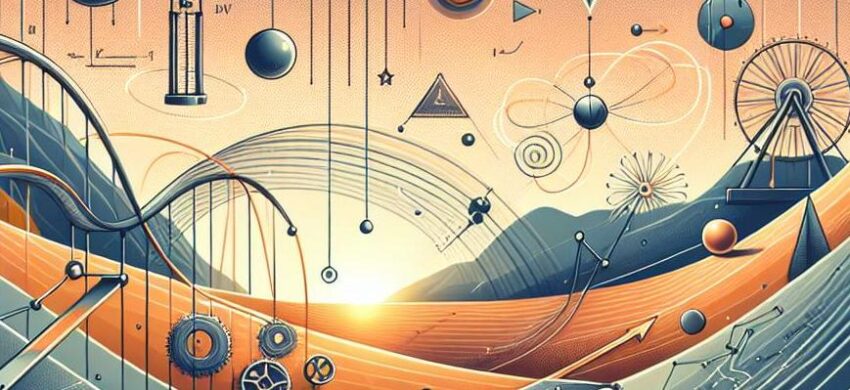Mechanics is a branch of physics that scrutinizes the causes of motion. It is primarily divided into two sections – classical and quantum. The former further divides into statics (objects at rest), kinematics (motion without force), and dynamics (motion with force).
Momentum, an essential topic within dynamics, represents the mass in motion. Mathematically, it is the product of mass and velocity. When momentum remains unchanged during any interaction, the principle of conservation of momentum applies.
Equilibrium is the state when the sum of forces exerted on an object equals zero, resulting in an object at rest (static equilibrium) or moving with a constant velocity (dynamic equilibrium). An object in equilibrium thus, has zero net force acting upon it. This principle is valuable for studying the real-world effects of forces on structures or within systems.
Understanding these concepts forms the fundamental building blocks for more complex studies, such as applied mechanics, fluid dynamics, or thermodynamics. Proper comprehension of them ensures smooth transition into higher-level physics.
 |
 |


